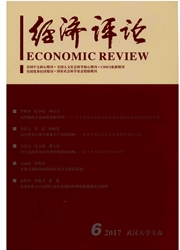

 中文摘要:
中文摘要:
“公平偏好演化起源”模型预设了19种要价类型,因而其中的公平偏好社会并非自然“演化”而来;同时,该模型一定程度上依赖群体选择理论。本文对其仿真模型做出重要改进,允许各要价类型在[0,1]区间上连续分布,且完全不考虑群体竞争,因而公平偏好主导整个社会将是在[0,1]区间遍历演化的结果,是真正自然“演化”而来的,无须依赖群体选择。运用不同参数进行上百次仿真实验的结果表明,最终的演化稳定均衡是公平偏好主导整个社会。原因在于,相对公平的要价最能实现合作机会多寡和合作利益大小的平衡,从而最具适存性。上述结果对“公平演化起源”思想提供了更加有力的支持。
 英文摘要:
英文摘要:
Dong (2011) developed an evolutionary game model and an agent- based model to argue that the fairness preference has its own evolutionary origins, however, that he presupposed 19 types of "offer" makes the fairness preference far from unlimited evolution, as well as his argument depends on group selection theory to a certain degree. This paper improves Dong' s agent - based model by making two revisions, one assumes that the types of agents' offer are continous distribution on [ 0,1 ] , the other gives up the group selection. These revisions make the evolution of fairness preference unlimited, and free from group selection theory. We launch more than one hundred experiments by the agent -based model, and find that fair offer (preference) would dominate the whole society because there is a trade - off between cooperation opportunities, and the cooperation benefit and fair (offer) behavior can balance the effects of cooperation opportunity and cooperation benefit on survival competition to get the highest fitness. The results above back up the thought of evolutionary origins of fairness more strongly.
 同期刊论文项目
同期刊论文项目
 同项目期刊论文
同项目期刊论文
 期刊信息
期刊信息
